Tackling poverty in Salford: An inspirational story
![IMG_3096[1]](https://i2.wp.com/afairsay.files.wordpress.com/2017/10/img_3724.jpg)
This is how a new approach to tackling poverty is succeeding in Salford
What if people living in poverty could take the lead in challenging Salford’s leaders to work with them on tackling poverty?
Would it make a difference to the decisions that are being made? Would new solutions be discovered?
Would people listen and, if they did, would they better understand the challenges that poverty brings?
Those were just a few of the questions that were being asked when Salford Poverty Truth Commission was launched in July 2016. On Friday, 15 months on, the answers were shared widely, at a moving and inspiring public event: Salford Poverty Truth Commission – Our Story So Far
>> For dozens more photos from the event, see our album on facebook
Dozens of people from across Salford and around the country gathered at The Sanctuary in Dallas Court. The crowd included Salford residents, people who work in the city, people with personal experience of poverty in Salford, and people involved in similar projects elsewhere in the country.
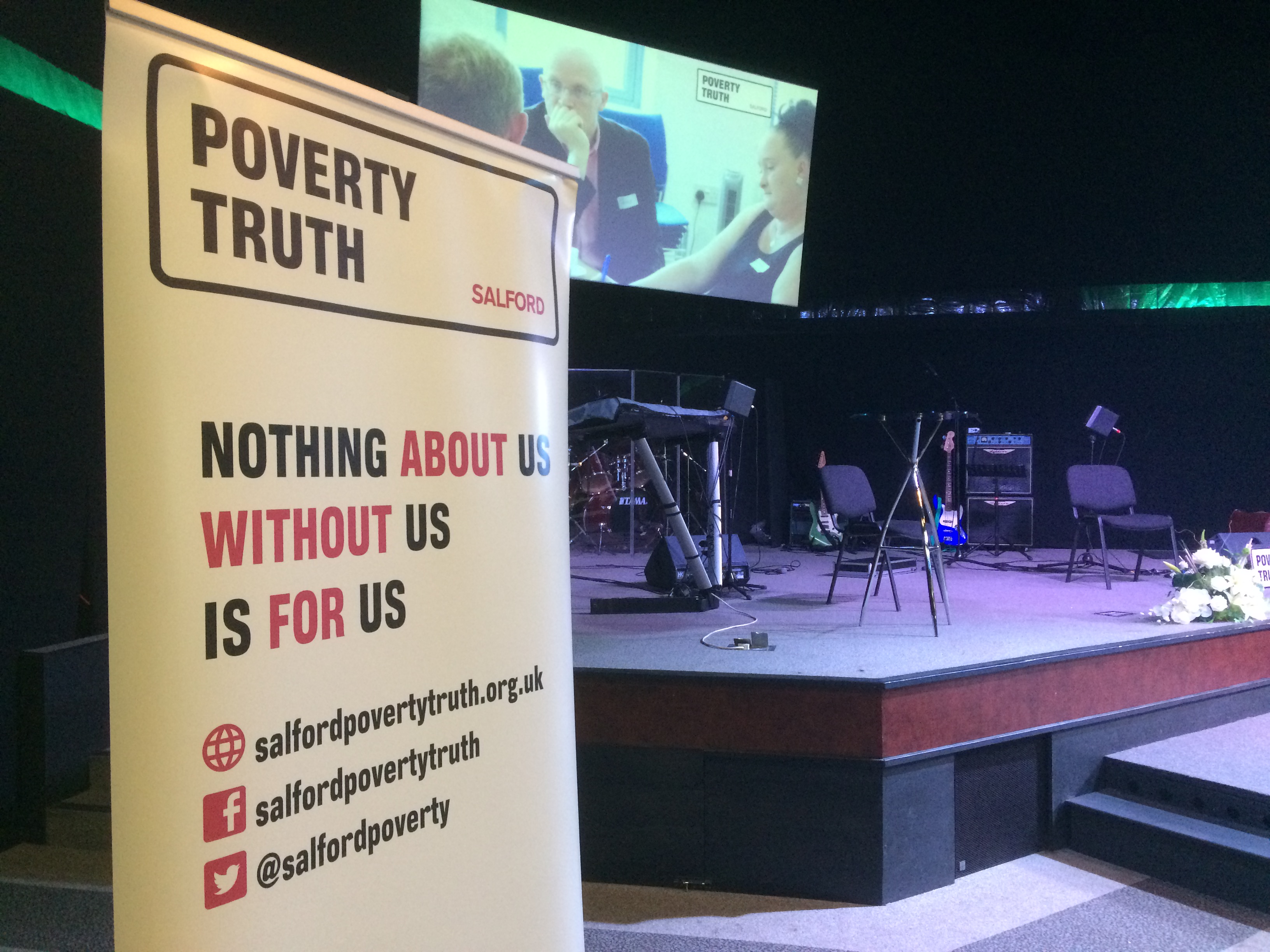
The event included poetry, drama, a mass rendition of Man In The Mirror, and moving first-hand stories of what the commission had done, and what it had meant.
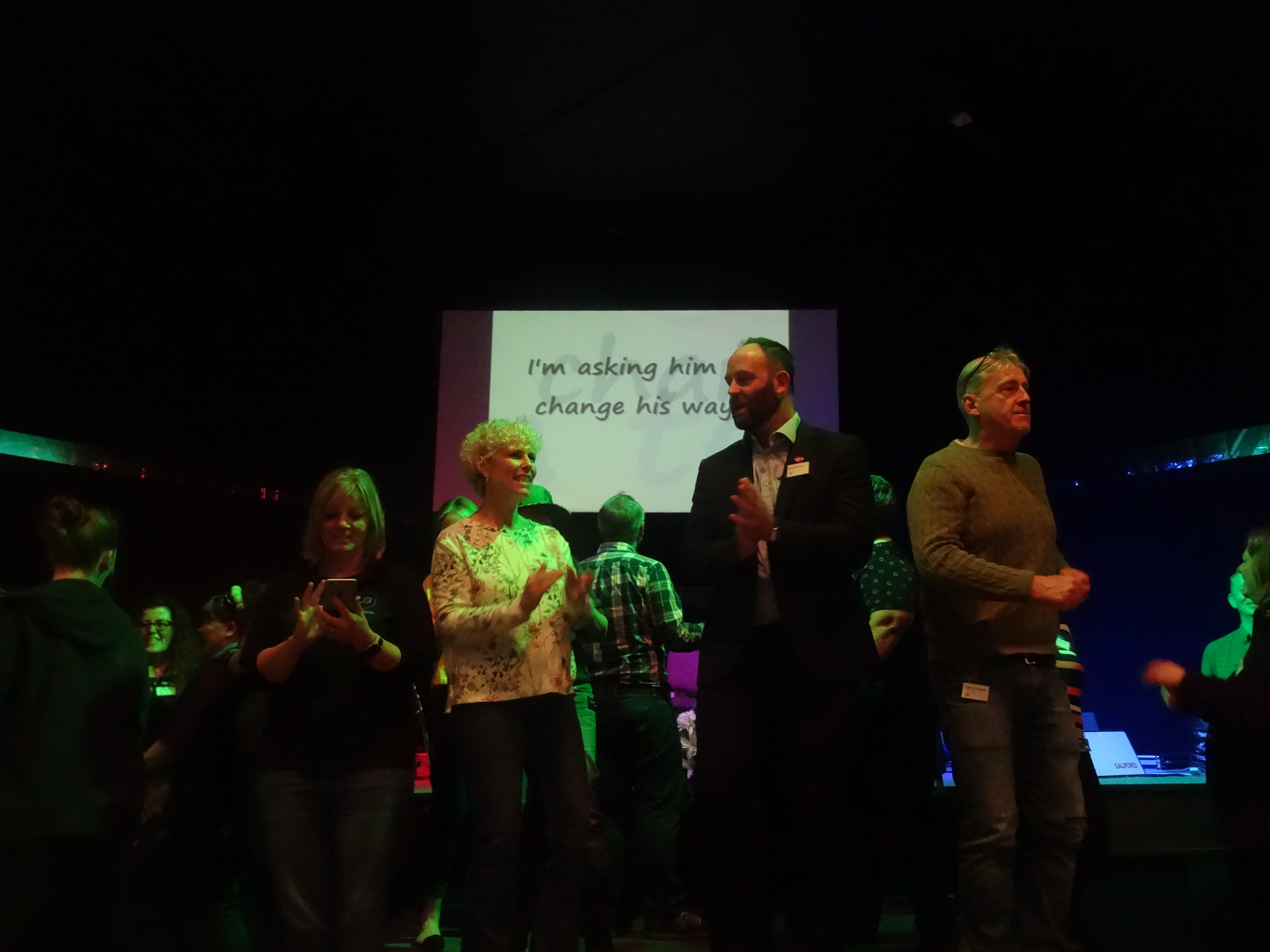
Poverty Truth Commissions (PTCs) are still a relatively new approach to addressing poverty at a local level. Nine have been (or are being) set up, and of those Salford is the third furthest forward. PTCs consist of people who have personal experience of poverty, and a matching number of people in business or public life, whose positions might enable them to help make changes happen. The PTCs focus on three broad areas, and meet monthly, coming up with proposals that can help to make a difference.
The Salford PTC began with 30 people, evenly divided between the two definitions, but commissioners on Friday told how they had united into one close-knit group, forming friendships and, only then, starting to draw up ideas that might make Salford better.
Laura Kendall and Tom Tasker compered much of the event. Laura said she had initially been wary of getting involved in the PTC but had decided to give it a go and was glad she had.
Patrick Philpott told of having seen huge changes in Salford, with the demolition of much of the old housing, and said the approach of the PTC could help bring back real community spirit to the city. He said the commission had been one of the most powerful projects he had ever been involved in.
Jayne Gosnall spoke about the need to involve Salford residents in the investments and developments in the city. She said: “Unless we can see it and feel it, ‘economic growth’ is just words and all we will see is our sky getting smaller.”
Alain Bougan told how he had fled southern Cameroon, fearing for his life, and said the PTC had meant community, friendship, support and the opportunity to gain new skills and qualifications.
City council director Debbie Brown said she had been devastated when she saw a diagram in which people had identified the council as a cause of poverty. “I was taken aback,” she said.

Since that moment, the commission has achieved much, including revolutionising the way that the city council speaks with, writes to and meets with residents. It has launched new face-to-face coffee drop-in sessions for people seeking help or advice, it has stopped using enforcement agents for council tax collection, it has re-written its standard letters to prevent “brown envelope syndrome” and it has given tax exemptions for more young people.
The council has also waived charges for copies of birth certificates for homeless people, enabling them to more easily obtain the official ID they need to access benefits. Angela Penny Barratt told how that change had come about and said the idea is now being discussed across Greater Manchester and in London.
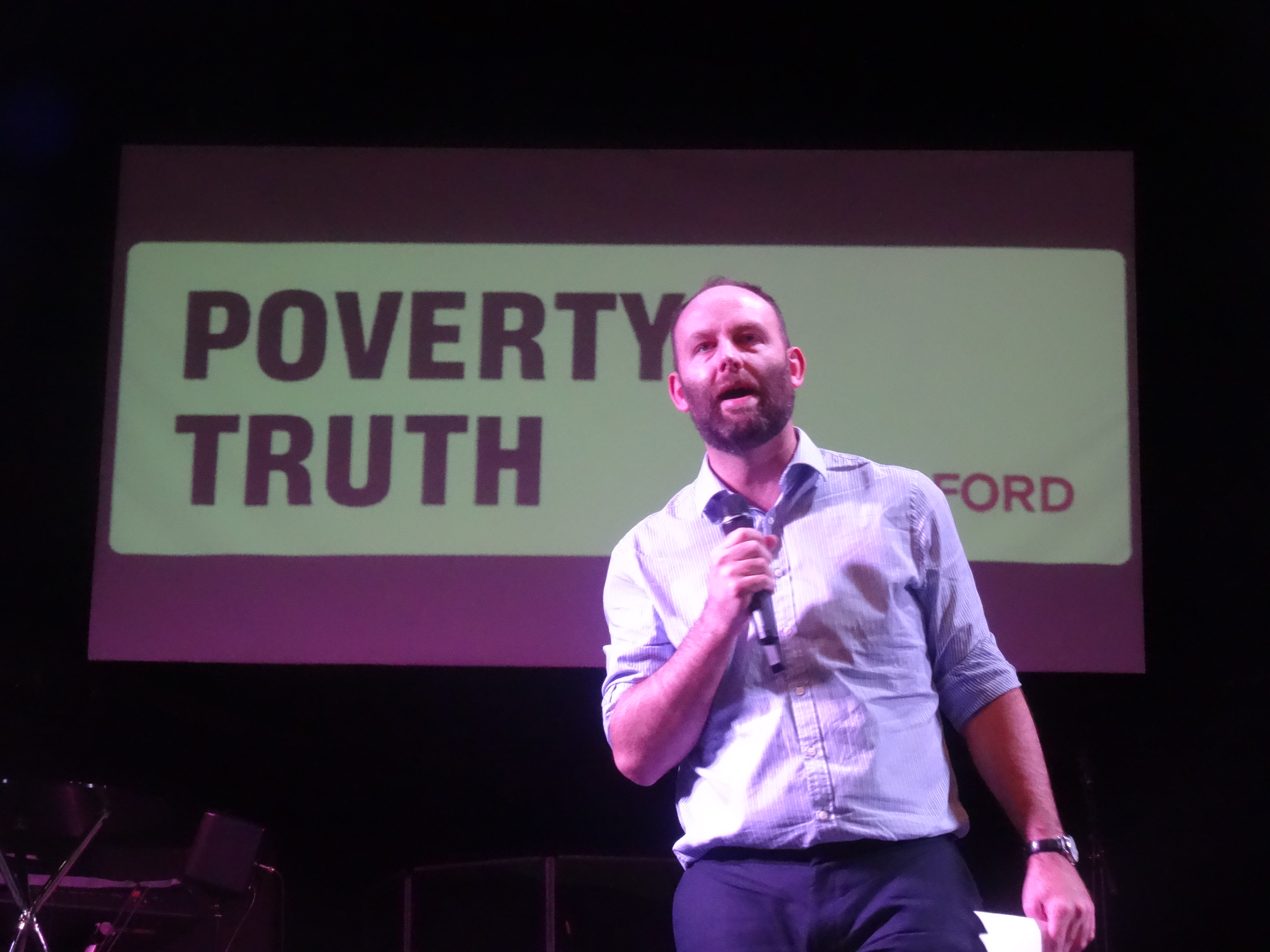
At each table, a ‘reserved’ seat was set aside. Pete Sims said that was so people would think of those who might be involved in the next stage of the ongoing work in Salford, and to ensure inclusion.
Before the spectacular musical finale, the Bishop of Salford, John Arnold, and Salford City Mayor, Paul Dennett, gave closing remarks. Mr Dennett praised the work of the PTC and also the approach.
“Politics is either done to us, or we shape it,” he said.
PTCs are a powerful way for people to choose that second option.
>> For more photos, see our facebook page
…………..
Background and key facts
- Salford Poverty Truth Commission was launched in July 2016, initially with 15 commissioners who had direct experience of poverty and 15 commissioners in business or public life, who were in positions to make change rapidly
- The commission is completely independent – it was not set up by the council, or any national organisation, but by people in Salford
- It is one of 9 poverty truth commissions that are working, or are in the process of being formed, in the UK. They are all independent, but sometimes share ideas
- The Salford Poverty Truth Commission has met as a whole group once a month, with particular task groups also meeting separately to address particular aspects of the commission’s work
- The commission has been supported by the Salford City Mayor and the Bishop of Salford
- The commission was facilitated by Church Action on Poverty and Community Pride
Some of the Year 1 achievements
- Salford City Council agreed to waive its £11 charge for copies of birth certificates, for homeless people who were born in Salford. The certificates are vital in helping homeless people to secure the ID they need to obtain benefits or housing
- A commissioner then met Andy Burnham and he has asked all councils in Greater Manchester to now look at whether they can do likewise
- A survival guide has been produced for street sleepers. It contains practical information and useful phone numbers and can be kept in a waterproof lanyard. Previously, information was readily available online only – no use for people without smartphones or internet access
- The PTC met homelessness support agencies, aiming to create more referral points in Salford. Until now, people have had to walk from Salford to Manchester to be referred back to the Narrowgate Night Shelter back in Salford.
- Salford City Council has launched new face-to-face drop-in sessions, where people can discuss financial problems with staff in confidence, over a cuppa. Representatives from CAB, Six Degrees, Salford Healthworks and Work Choice will also be there.
- Salford residents were given a voice on national television news, when Channel 4 chose the city for an in-depth investigation into social housing
- Salford City Council has reviewed its debt recovery and income collection systems, after face-to-face conversations in the commission, to ensure they are a sensitive as possible and do not create further hardship, distress or difficulty for vulnerable people. The council will provide earlier help and financial support; has committed to not use enforcement agents when recovering debts from the most vulnerable residents who receive a council tax reduction, and will adopt the LGA and Citizens Advice’s Collection of Council Tax Good Practice Protocol
- Plans have been drawn up for a Mad Pride event, to raise awareness of mental health issues linked to poverty and to challenge stigma
- People with direct experience of poverty and people in positions in civic life have met as equals, and worked together to deepen understanding of poverty in Salford
- A Salford Poverty Truth Commissioner was invited to talk at the People’s Powerhouse event in Doncaster
- Salford residents have joined a network of poverty truth commissioners

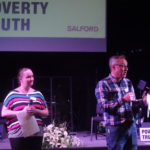
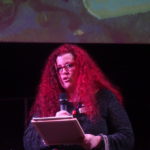




Comments (02)
Comments are closed.